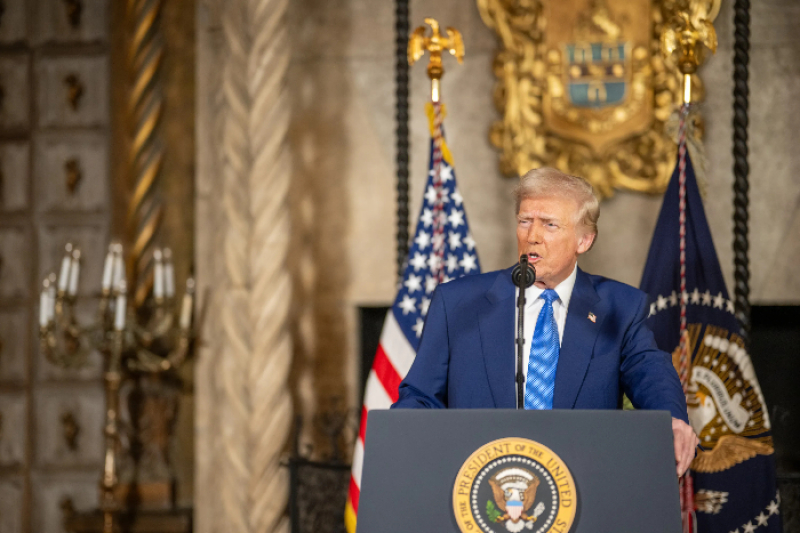
President Donald Trump announced on Saturday morning that following a night of intensive U.S.-mediated negotiations, the nuclear-armed rivals India and Pakistan have agreed to a “FULL AND IMMEDIATE CEASEFIRE.”
In a post on Truth Social, he declared, “After a long night of talks mediated by the United States, I am pleased to announce that India and Pakistan have agreed to a FULL AND IMMEDIATE CEASEFIRE. Congratulations to both Countries on using Common Sense and Great Intelligence.”
The conflict between the two nations escalated on Saturday as both accused each other of continuing drone and missile strikes, fueling fears of a broader war.
U.S. Secretary of State Marco Rubio also praised the ceasefire, posting on X that he and Vice President JD Vance had “engaged with senior Indian and Pakistani officials, including Prime Ministers Narendra Modi and Shehbaz Sharif, External Affairs Minister Subrahmanyam Jaishankar, Chief of Army Staff Asim Munir, and National Security Advisors Ajit Doval and Asim Malik” in efforts to promote peace.
Christian leaders in both India and Pakistan have called for prayer and fasting, urging their communities to seek peace through spiritual solidarity. Bishop Nadeem Kamran of the Anglican Church of Pakistan led a regional appeal for a joint day of fasting and prayer, warning that “war would bring destruction neither country could afford” and condemning terrorism in all its forms.
Kamran urged both governments to resolve their differences “through dialogue rather than warfare” and asserted that “only a joint strategy could deal with terrorism without inflicting harm on innocent civilians.”
In Rome, Cardinals Oswald Gracias of India and Joseph Coutts of Pakistan also reaffirmed their dedication to peace, referring to a collective appeal made during the College of Cardinals' General Congregation.
The current tensions are rooted in “Operation Sindoor,” an Indian military offensive launched on Tuesday in response to a terror attack on April 22 that resulted in 26 tourist deaths in Indian-administered Kashmir. India claimed to have targeted terror hideouts linked to Jaish-e-Mohammed and Lashkar-e-Taiba, asserting the strikes were “lawful reprisals” and reporting the elimination of several terrorists, including Abdul Rauf Azhar, a senior commander associated with the 2002 killing of American journalist Daniel Pearl.
Pakistan’s military claims that the strikes resulted in the deaths of 31 civilians and targeted the Neelam-Jhelum Hydropower project as well as a mosque. In contrast, India has stated that 16 civilians lost their lives due to the strikes carried out by Pakistan.
Pakistan responded by claiming that “it downed three Indian jets and one drone,” though India has not confirmed the loss of any aircraft. Pakistan also accused India of suspending the Indus Waters Treaty, a 1960 water-sharing agreement sponsored by the U.N. and aimed at regulating water disputes.
Despite international calls for de-escalation from groups such as the G7 and the United States, tensions remain extremely high, with both countries on heightened military alert. The combined population of India and Pakistan exceeds 1.6 billion, and Christians in both countries remain a minority facing severe persecution.

















